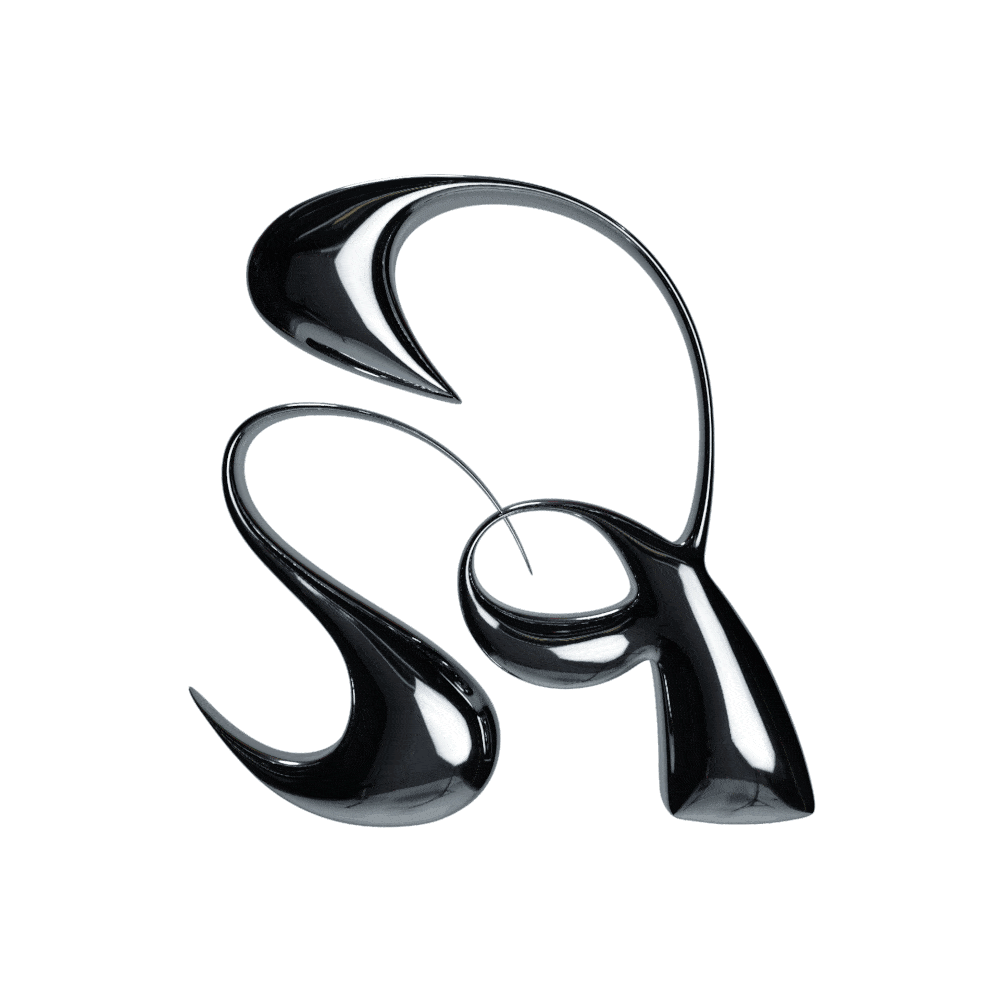A Rare Peek into Min Hee-jin’s World
Editor: Harry Jun, Kim Jae-hun, Park Sanha, Jin Chae-min, Contributing Editor: Cha Woo-jin, Photographer: Song Si-young, Translator: HKPP, Kim Hyun-kyung
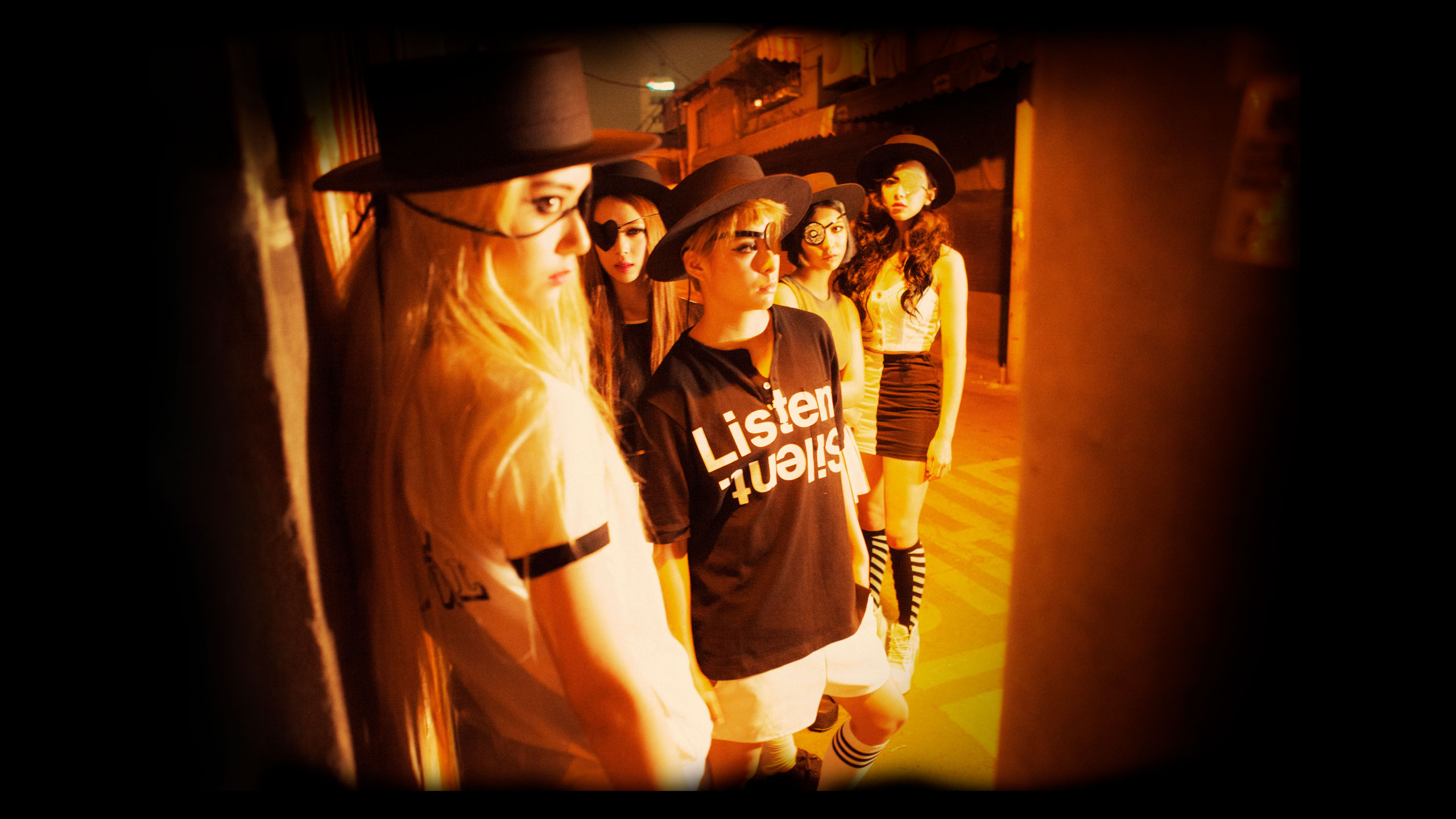
Artist Project
A Series of Profound Conversations with Artists
BeAttitude’s Artist Project explores the artistic worlds and mindsets toward creation of different artists through in-depth interviews with each of them. The fourth interviewee is the CEO of ADOR, Min Hee-jin. Most people know Min for her role as the creative director of SM Entertainment, where she led the new Korean Wave. Since 2019, she has served as Chief Brand Officer (CBO) at HYBE and is also the CEO of ADOR (All Doors One Room), an independent label within HYBE that she launched last year. As she normally shuns all media exposure, her appearance on You Quiz on the Block last year—her first television appearance to date—turned heads. BeAttitude recently caught up with Min, who has been building up her name recognition in the K-pop industry over the past 20 years, for an exclusive interview. Dig deep into her insights about the K-pop industry through the most recent entry in our article series!
Artist Project 04: Min Hee-jin
BeAttitude’s Artist Project is an exploration of the artistic worlds and mindsets toward creation of unique artists through in-depth interviews with each of them. We chose Min Hee-jin to be our fourth interviewee. Min was constantly making waves in K-pop, the industry at the crest of the Korean wave, for her work as the art and creative director at SM Entertainment, where she led the new Korean Wave. Min has been working as Chief Brand Officer (CBO) for HYBE since 2019 and became CEO of ADOR, an independent label launched under the HYBE umbrella, where she is spearheading the debut of a girl group in her characteristic Min Hee-jin sensibility. BeAttitude invited Cha Woo-jin, a pop culture critic, to serve as a contributing editor for this exclusive interview. Four of our staff members, all K-pop enthusiasts, joined Cha in interviewing Min in the form of a conversation. Enjoy this exciting two-part series.
Part 2. A Rare Peek into Min Hee-jin’s World
When the first part of the exclusive interview with Min Hee-jin—the leader in innovative K-pop branding and who is now leading HYBE’s independent label ADOR—went out, the editorial team at BeAttitude couldn’t believe their eyes. And not only because of the huge surge in visits to our site. We were at once surprised by the influx of readers from all over the world and their distribution around the globe as well as by the immediate reaction on Twitter, which ranged from translations into Arabic, Spanish and Thai to fervent anticipation for the second part. We experienced first-hand the lightning-like sparks of joy our readers could experience from an interview so densely packed with stories in both Korean and English. This led us to delay the publication date of this next part of the interview to ensure we had enough time to hear all about the changes Min experienced after the release of Part 1. We also added her thoughts on the reactions from across social media, intimate stories revolving around the girl group that’s getting ready to debut under ADOR, and her own inspiring playlist. We hope this rare glimpse into Min’s thoughts, views and personal stories provided by Part 2 satisfies the curiosity of everyone who has been following the every move of the executive who has affectionately been called the “leader’s leader” of the industry.
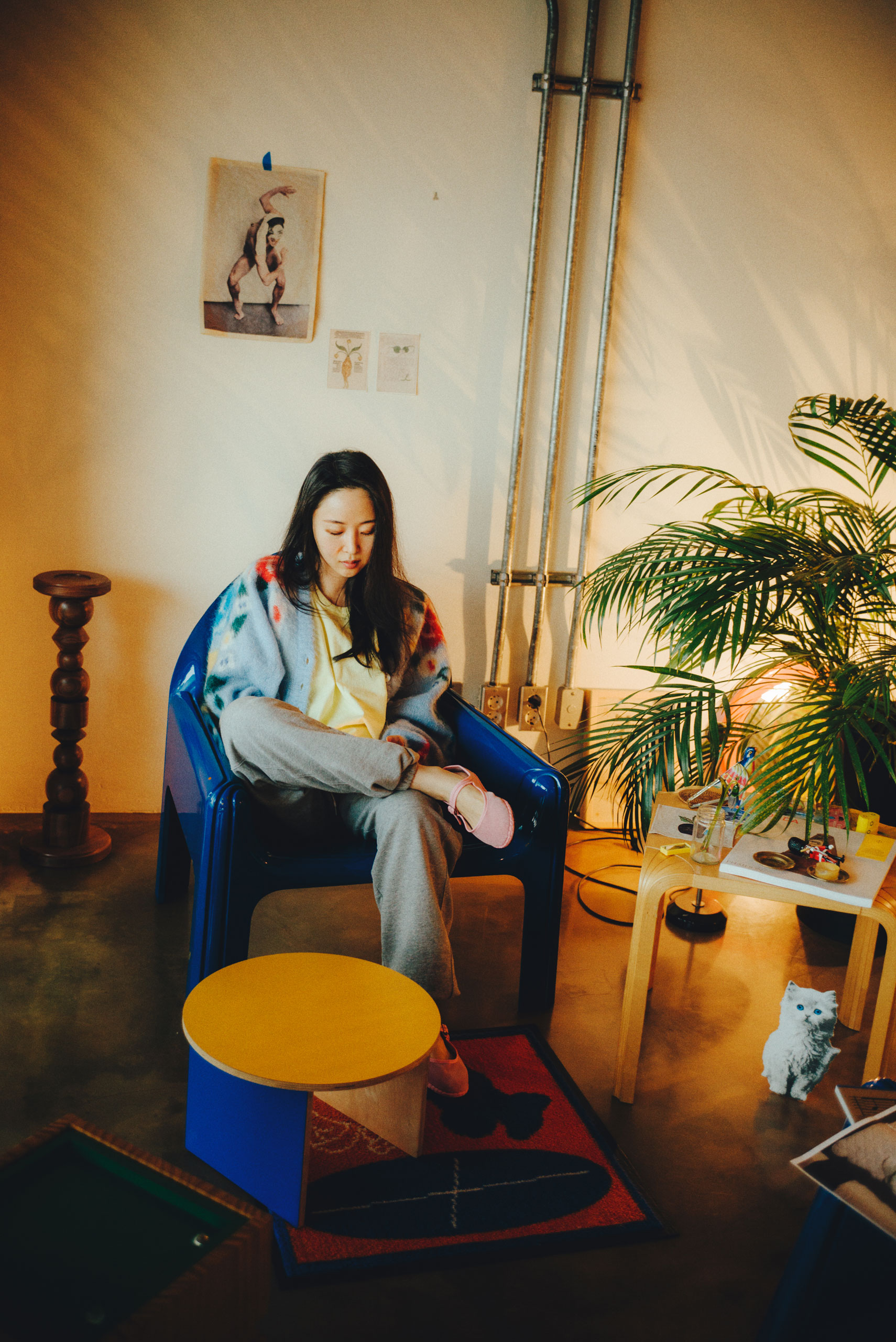
(Park Sanha) Part 1 received a really great response after it was published. The misunderstanding was cleared up and people were moved by your sincerity. How did you feel about it?
I couldn’t say every little thing I wanted to tell people, but it was nice to be able to say those things out loud. It felt like I was interacting with the customers directly, and that was the most meaningful part for me. I was also curious how people would feel about the things I said, since the interview was a bit different from the ones I did before, but I was so thankful they embraced what they read. Since BeAttitude’s editorial team said they want to hear about the human side of Min Hee-jin, I’m thinking I’ll try to speak a little more freely and openly this time. Since we’re probably going to be talking mainly about my personal life, it might not be everyone’s cup of tea and it might end up running long. So, just a friendly warning: If long articles aren’t your thing or if you don’t have any interest in my life story, it might be better if you close the window now. (laughs)
(Jin Chae-min) There’s a lot of buzz surrounding the girl group you’re producing. The way you’re so affectionate toward your upcoming girl group has raised people’s expectations. What would you say your nurturing style is like?
I look at myself as their mom. (laughs) It feels like I’m taking on the mom role while also their friend at the same time. The girls are honestly so sweet and wonderful that I always feel like talking about how proud I am of them. I never liked any idols as a kid and I was never the type to have any illusions about celebrities. For me, celebrities have always been more like colleagues, or siblings, or my own kids. So it only makes sense I would feel the same way about my own label’s trainees but stronger. So I tell myself I have to be sensible and keep my composure. Someone told me they happened to overhear an employee in another department a few weeks ago admiring how the ADOR trainees always say hello and how polite they are. I was suddenly struck with emotion. I thought, “Oh, is this how parents feel?” Like I was hearing the song “You Can Do It, Dad!”* (laughs) I immediately bombarded the girls with accolades in our group chat.
* A famous children’s song.
I don’t like people who try hard to come across as a good person for show. I’m not easily won over by those tactics. I hope our girls will be warm-hearted to everyone in any circumstance. Being kind for the sake of appearances requires conscious effort so it becomes a chore. It’s tiring and eventually becomes difficult to keep up. I think your inner values are what count the most. That’s especially true when you interact directly with the public. People aren’t robots—we make mistakes and we can’t always be friendly. Rather than obsessing over their outward-facing character, I hope our girls always exercise inner strength and kindness.
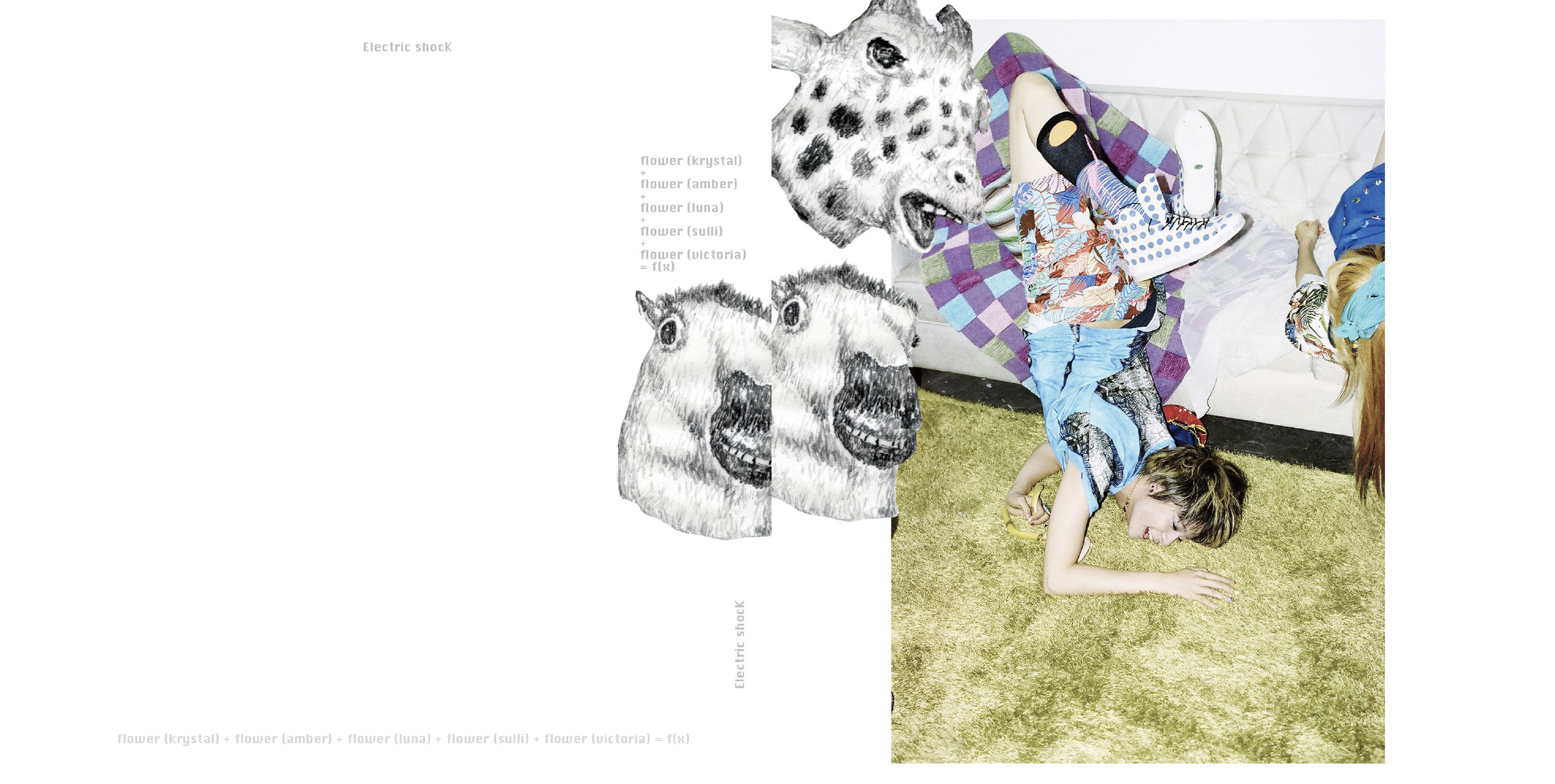
f(x)_[Electric Shock] © SM Ent.
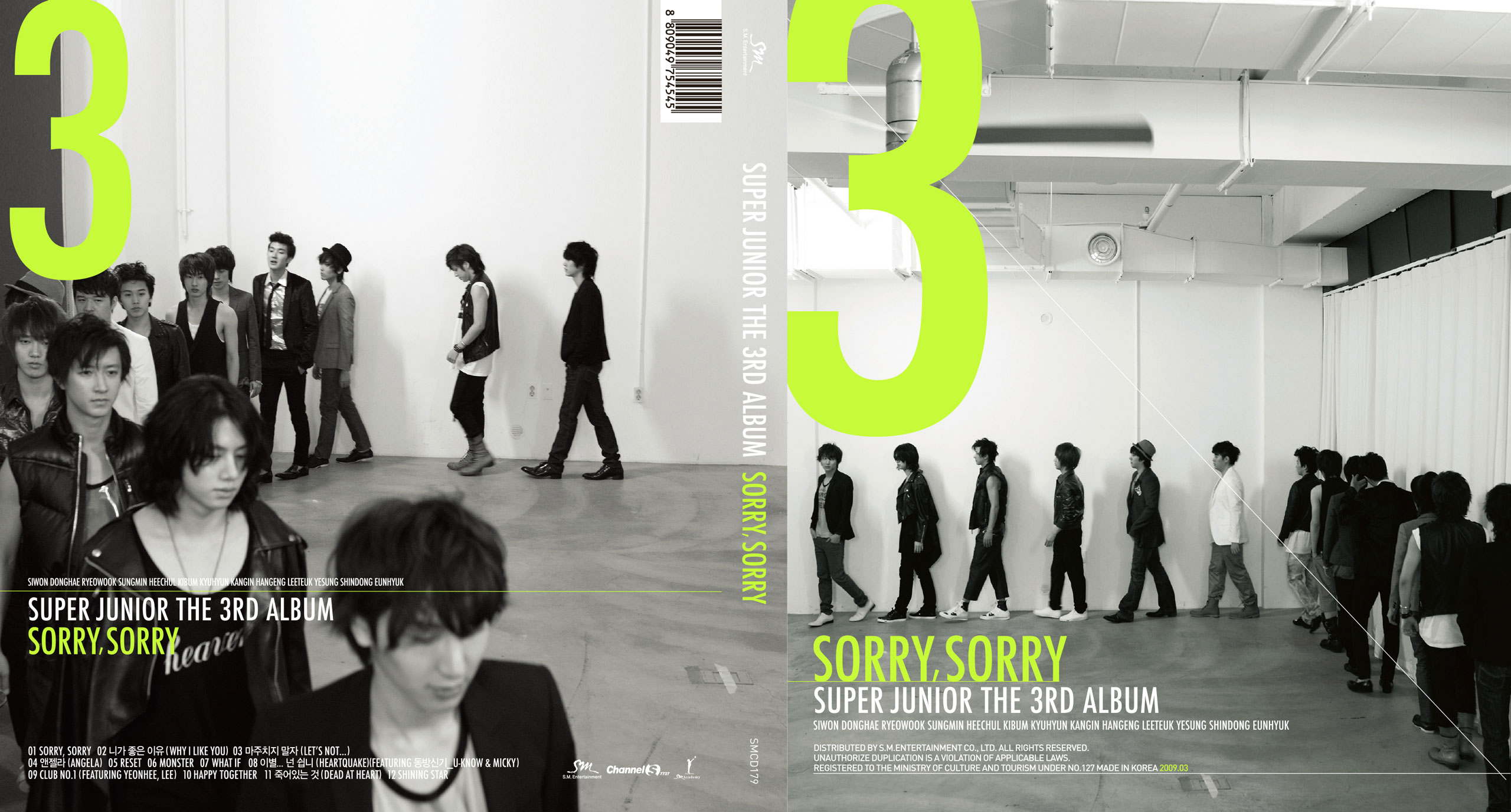
Super Junior_[Sorry, Sorry] © SM Ent.
(Kim Jae-hun) Now that you say that, I’m curious about the training process. How would you describe the direction you’re taking?
I’ve faced numerous problems in this industry in the 20 years I’ve been working in it and I developed some know-how and a philosophy of my own. Casting and training are usually kept separate from the actual production stage, but I think the casting and training processes are important for boosting creativity. When I was just a creative designer in the past, I couldn’t really get involved in the training process. So I wanted to take control of the whole process, including casting and training, by launching a separate label of my own. I think that’s especially important since the average age of the kids who aspire to become idols is relatively low. Naturally I’m trying to keep on top of a lot of small details during the training process.
There have been many unforeseen fluctuations on the business side, so it might have seemed confusing from the outside, too. Even though the girl group started as a collaborative project, they later became solely an ADOR group, so I’ve been in charge of ADOR’s whole girl group system since September 2021. And the first step was the training. The very first thing I did was to check their health and lifestyle, plus check the condition of the accomodations and the practice studio. And trainees usually have a hard time keeping up with school when they’re set to debut because there’s so much they have to do to prepare for it. But in reality, even if you didn’t like school when you had to be there, you might feel left out and like you’re missing something once you’re no longer able to attend. Because people tend to linger on the things they’re not able to experience… So I felt like I wanted to create, to the best of my ability, a substitute environment. I think the trainee life we provide is akin to a mini version of school life, so I feel they’re studying things at the label in place of what they would learn at school. The things we study are similar to subjects like music, art, history and language arts. To look at it another way, you could say the subjects they’re most interested in are more immersive now. They’re even able to develop relationships and social skills with their fellow trainees and their trainers. That’s why I always emphasize to all employees in our organization that they’re also role models.
In the same way, we made time to write lyrics together. We see it as a kind of class in language, literature, creative writing and essay writing. I explained the whole concept of the album to them and the direction the songs are taking first, then everyone had some time to talk about their own experiences. It was meaningful and interesting just hearing all about each member’s experiences, but I was proud of them because the lyrics they produced afterward were full of potential. So now we actually plan for at least a little bit of the lyrics they wrote to be included in their songs. We chose to do it as part of the learning process. They’re inexperienced because they’re young, but that inexperience is what makes them as brave as they are. Even if the lyrics aren’t perfectly elegant, the process and what they were able to pull out of themselves as a result were invaluable and radiant in their own way. I think you have to take time to continuously observe someone rather than make a rash decision about whether or not they have talent. You never know unless you actually try, and in many cases their talent will be discovered over the course of persistent practice, even if they initially seem like they don’t have any. I would hate to overlook someone like that.
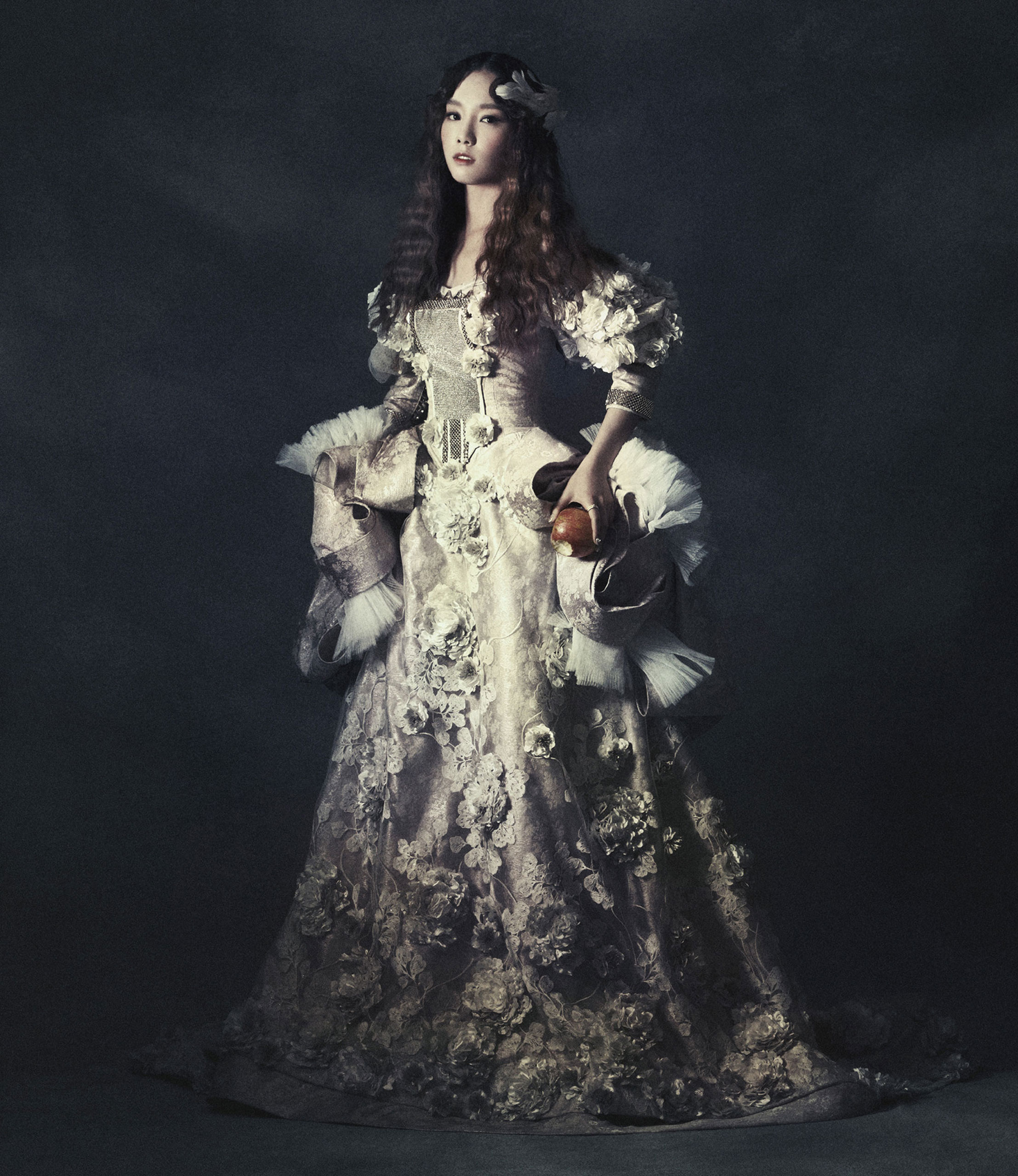
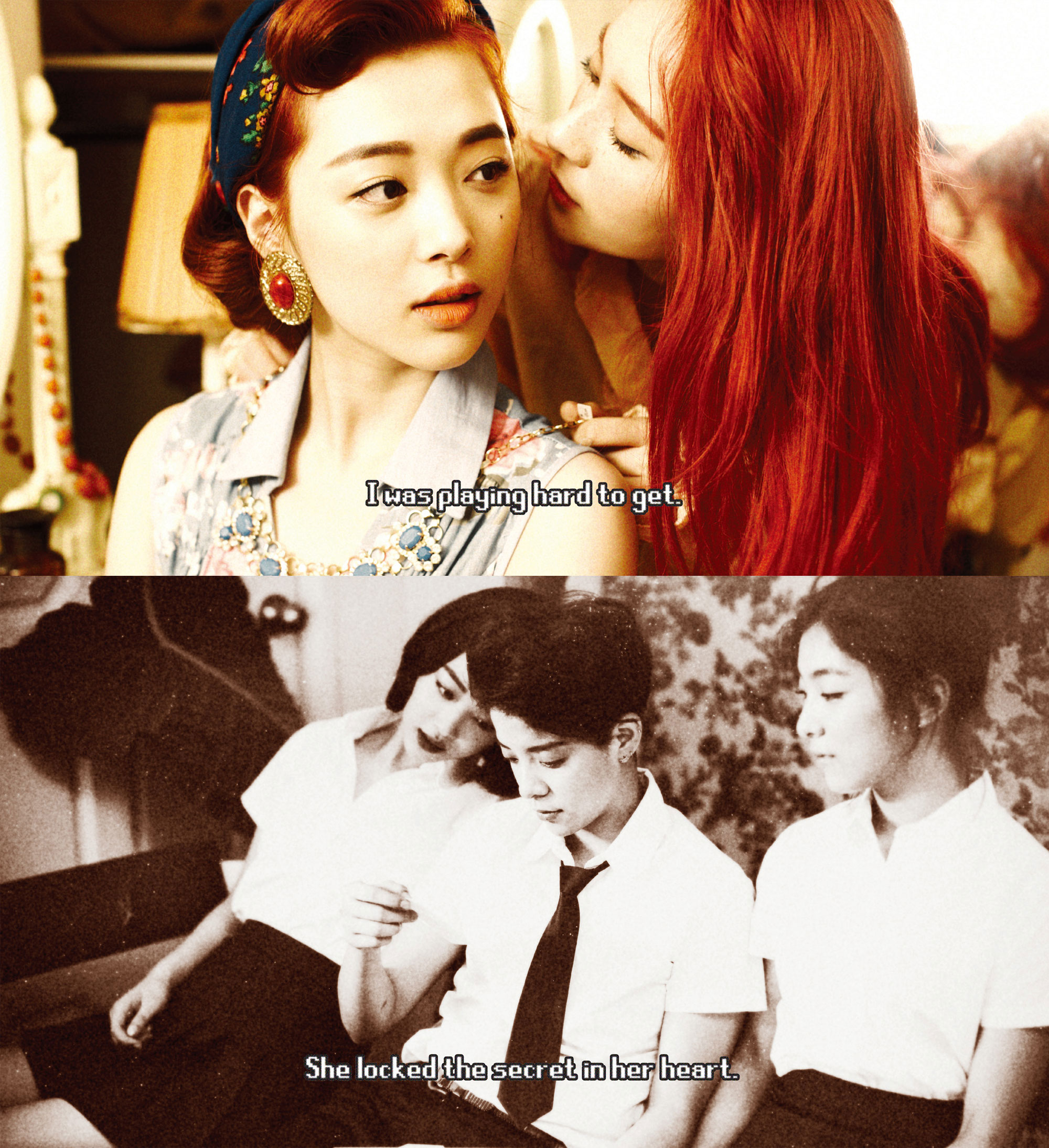
Girls’ Generation_[The Boys] © SM Ent. | f(x)_[Pink Tape] © SM Ent.
(Cha Woo-jin) What do the group members think of you?
I’m not too sure. Haha. Even though I talk to them like friends, they might struggle with that because of our age difference or my position, you know? (laughs) Titles can make for awkward situations. I don’t like how rigid it feels being called by my title, daepyonim, but having said that, Ms. Min, eonni, Producer Min, Director Min—they’re all equally uncomfortable, so we all just decided to stick with daepyonim. But then one of the members made a typo in a message she sent me where it said “daepyoonim.” I actually found that one really funny and cute and liked it best. Hahaha!
I mean, I’m not as young as I used to be, and I’m worried I’m unconsciously talking about the girls like they’re babies, so I think maybe I should tell you a little about them. When you see them in person, they have such tremendous skill, talent and passion that you hardly even notice how young they are. And what makes them so special is how they each have their own talents and appeal. They’re extremely close with each other, probably because of their time training together, and they all freely and fluently move between Korean and English, which I think will allow them to broaden the range of fans they can reach out to.
(Harry Jun) Could we hear a little more about the members?
I would love to talk about all of them one by one, but since I can’t do that, um … Usually, in a situation like this, people choose to talk about the youngest one, right? (laughs) Our youngest member is cool and sophisticated. She came to my home one day and we ate together, went to the bookstore, and walked around the neighborhood, talking about this and that. There was a passing awkwardness, but after a while it felt like I was taking a walk with a friend. She’s got so many talents and amazing skills. She’s young, but thoughtful, with that innocence they have at that age. I still remember bathing in her refreshing energy, and the sublime weather only added to the effect. One time the whole group came to my place to hear about the concept and direction of the group and this kid heard the music I was listening to at home and kept saying how much she admired it while taking notes. Hahaha. They weren’t the kind of songs kids her age would really know, and I can’t imagine she had ever heard any of them before, but watching how genuinely she liked them suddenly made me feel strange and brought me back to my younger years. It was fascinating. I could feel this strange sameness that transcended generations. If I could, I would tell you everything about every single one of the members, but once I start talking about them I know I can’t stop. It’s all very difficult, fun, cute, fascinating and surprising at the same time.
(Jin Chae-min) Hearing everything you said about the group members makes me think of the term “Min Hee-jin kids.” Is there anything you’d like to say to them?
One of our team members, Kim Nayeon, used that expression to describe herself. She said she liked my work and grew up on it, so it was so amazing that we ended up working together. It’s amazing and touching, and a little bit embarrassing, and I’m really thankful. It sounds awkward coming out of my mouth and I feel indebted just speaking the words. A few years ago I was a speaker at a lecture and after it was over some students came up to me and asked for my autograph. For me, signatures are for signing documents, and it was so awkward and funny that I almost couldn’t do it. It’s so cringey. Anyway, they were in tears, saying it was an honor to meet me, and, um, it’s not exactly easy to forget a feeling like that. I find it stunning, and it makes me feel so emotional I can’t find the words to describe how touching it is. I couldn’t believe they were moved to tears just from meeting someone who’s nobody special like me. I’m basically just the girl next door… so I tried to comfort them and I told them not to cry. I was so thankful and moved. Sometimes people I meet in a meeting will even describe themselves using that expression. Or they’ll say their own kids or their nieces or nephews are. When I imagine them having a good upbringing and functioning as talented members in any part of society, like Nayeon, well … I don’t know how to express it, exactly, but it feels like my heart is full, and now it’s spilling. To be completely honest, I just want desperately to do everything I can so I can let those people who self-identify with the term how grateful I am to them.
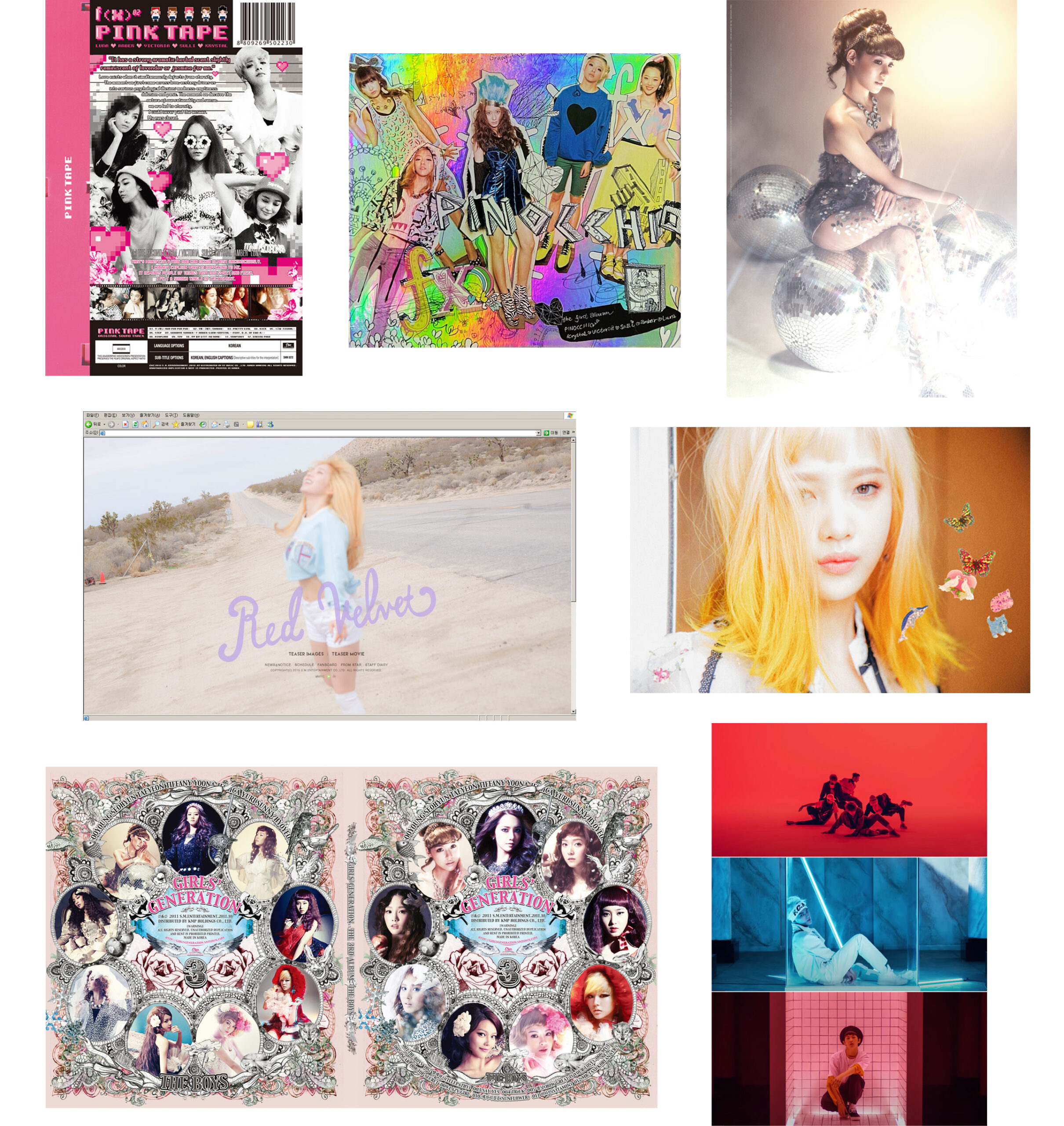
f(x)_[Pink Tape] | f(x)_[Pinocchio] | Girls’ Generation_[The Boys] | Red Velvet_[Ice Cream Cake] | Red Velvet_[Ice Cream Cake] | Girls’ Generation_[The Boys] | NCT U_[The 7th Sense] © SM Ent.
(Jin Chae-min) Has anything changed since the first part of the interview was published? It’s okay even if it was something small.
I think I’ll have to give some background information to explain what changed. And I’m afraid it might be a little long. As weird as it sounds, I lived a major portion of my life really feeling like I was hated(?) in a way. I touched on it briefly in the earlier interview, but I think for quite a long time I had been subjected to cases where people made excuses to criticize me, without any basis in truth and with no attempt at constructive criticism, for no reason other than because they wanted—and I’m putting this bluntly—to sabotage me. In many cases it had nothing to do with my work, so I just overlooked it, but after leaving it all alone, one day I felt like it was trapping me in a box. I can’t debunk every criticism that comes my way from people who aren’t properly familiar with my work one by one. I can only refute or correct them if they’re willing to listen, after all. But after leaving those assumptions alone for so long, they came to be accepted as truth, and people who didn’t know me and only knew me by name became quicker to condemn me, turning into a vicious circle.
If your whole goal from the start is to slander somebody, there’s really no point in fact-checking. The fact is those people don’t have much interest in what’s really going on with other people. I’ve witnessed the “everybody was saying it so I assumed it was true” phenomenon countless times. How ironic. I don’t really search my own name much, so I guess you could say it was lucky I found out about all that as late as I did. (laughs) I can understand why people think that way, since another person’s business is only of passing interest to them, but there were still a few years there where I felt terrible. I’m a lot better now, but I had to see a psychiatrist and a counselor when the panic attacks and anxiety got worse. Harry Jun was surprised to see how many views the first part of the interview got after it went live and said, “Ah, is this what it feels like to work in the entertainment industry?” I replied that it’s a double-edged sword. People are probably mainly envious of the fame itself, so they probably have no interest in the consequences. Maybe that’s why they’re mostly oblivious to the fact that others might suffer from all the slander. There might be some people who read this and wonder what it’s all about. In every industry, there are always bright spots and darkness. I’m not the kind of person who enjoys receiving attention, and with how obsessively I was working, I think the pain was amplified for me.
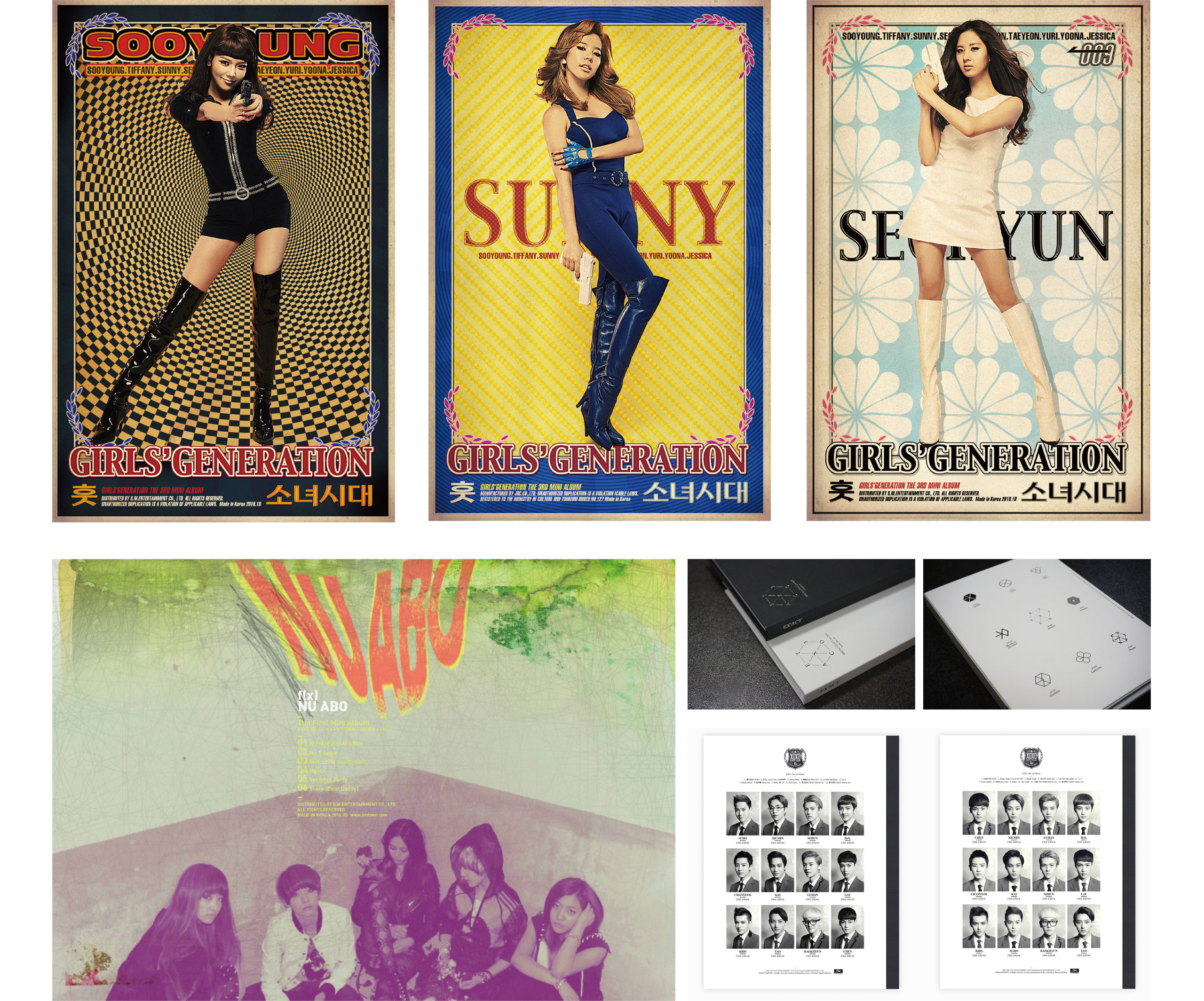
Girl’s Generation_[Hoot] © SM Ent. | f(x)_[NU ABO] © SM Ent. | EXO_[EX’ACT] © SM Ent. | EXO_[XOXO] © SM Ent.
(Park Sanha) I’m surprised to hear you say that. It seems like you were going through more than I could have imagined.
Breaking through the inertia of an organization in order to achieve something is no easy feat, especially for one person. Not only is there the effort involved in a multi-pronged plan of action to persuade a company, your colleagues and the consumers on the road to achieving your goal, but even if you get it done, no matter how overwhelming the work seemed, sometimes those hardships quickly become taken for granted, which makes you feel like it was all in vain. And it’s ultimately the organization that is realigned and a never-before-seen system is created, which serves to give the company an opportunity to climb one step higher. Of course, the one who did all that work might feel a sense of accomplishment as an individual during the whole process, too. But I think I was a bit hurt during the process, through everything I experienced inside and out. It felt like all the credit went to the company and any fault was attached to my name as an individual. The longer I had to endure the hardship, the more I lost my enthusiasm and my heart hardened. That was one of the things that triggered my burnout and it had some impact on my decision to quit that job. I would’ve much preferred if there had never been any mention of my name at all … But, as I said in the previous interview, I regarded it all as the trials and tribulations of a director working in pop culture, so I got through it by living like an ascetic. Maybe I would’ve suffered less if I had put a little less of myself into my work, but I’m not that kind of person, so when the work felt more and more futile I was torn whether I should skip finding a new employer and walk away from the business altogether instead.
(Park Sanha) That’s awful. How are you now? Did you get through it okay?
I thought things would get a little better if I quit. But even after I decided to leave and was in the process of starting with a new employer, things repeated just like before. My decision to quit and find a new job wasn’t motivated by financial reasons. And it wasn’t a case of lofty expectations or idolizing the company. Unlike most people, I didn’t even decide where my next job would be, since my primary goal was to escape the psychological pressure I was feeling. I can have my own standards and reasons, different from the normal, universal criteria or goals that are so dominant in the world. And I’m not strictly required to explain those reasons to others. I tried not to care too much, since everyone has their own ideas about what’s important in life and they won’t always understand everything about me, but once people started speculating wildly and spreading rumors about extremely personal issues like when I found a new job, I inevitably felt like surrendering emotionally. It just—it led to thoughts like, “I guess they must hate me.”
People were saying the outside world came to see me as “SM in human form.” That’s what I heard when I was changing jobs. I found it incredibly surprising and unbelievable when I heard it, personally. People wouldn’t expect it, but considering how long I worked there, there was always a sort of unbridgeable gap between me and the company. It wasn’t an issue of compensation or the way I was treated. People always ask why I left the company even after I was given a position on the board of directors at such a young age, but becoming a part of the board wasn’t a particularly meaningful event in my life, to be honest. The work I was doing was far more important than any executive title. I was never one to exercise unconditional loyalty out of a sense of duty toward an organization. Maybe it would be more accurate to say I value genuine loyalty between people. Personal loyalty between people of the same organization is absolutely indispensable. And the two are entirely different concepts. I think I had a sense of personal loyalty when it came to my projects. Anyway, changing your job might be a common occurrence, but it ended up bogged down in so many issues that I was left with a very heavy heart. It was like, everywhere I went, I was walking on eggshells.
So I had so many mixed emotions after seeing the response to this interview. It’s not because it got the response I wanted, but rather because I felt to some extent that I was being empathized with and understood. I was grateful to everyone who tried to understand me and was looking forward to the next part. If I had to choose something that changed in me because of the interview, I would say I figured I could relax a bit for the second part of the interview and I saw a glimmer of hope that what I once thought was a severed connection was actually a channel open for communication. The relationship between producers and consumers in this field felt oddly distant to me at the time. I think I disliked that feeling of distance. I pour my heart into the things I create so it felt bad whenever someone doubted my sincerity. Moreover, hearing the consumer out and gathering their opinions is the very basis of my work, but there’s no way to hear them if we aren’t close. I wasn’t really in a position where I could come forward and say it before, but things are somewhat different now. I’m quite straightforward. The reason I’m opening up about these stories now but never before is not to express the difficulties I’ve been through but because I want to open up about my true feelings more. It’s difficult to look the present head-on without first understanding the past. I personally find it encouraging that my inkling of a private suspicion that, if I reached out to the consumers with complete sincerity first, I could be a little more connected to them than before, was confirmed. It’s a two-way street, after all.
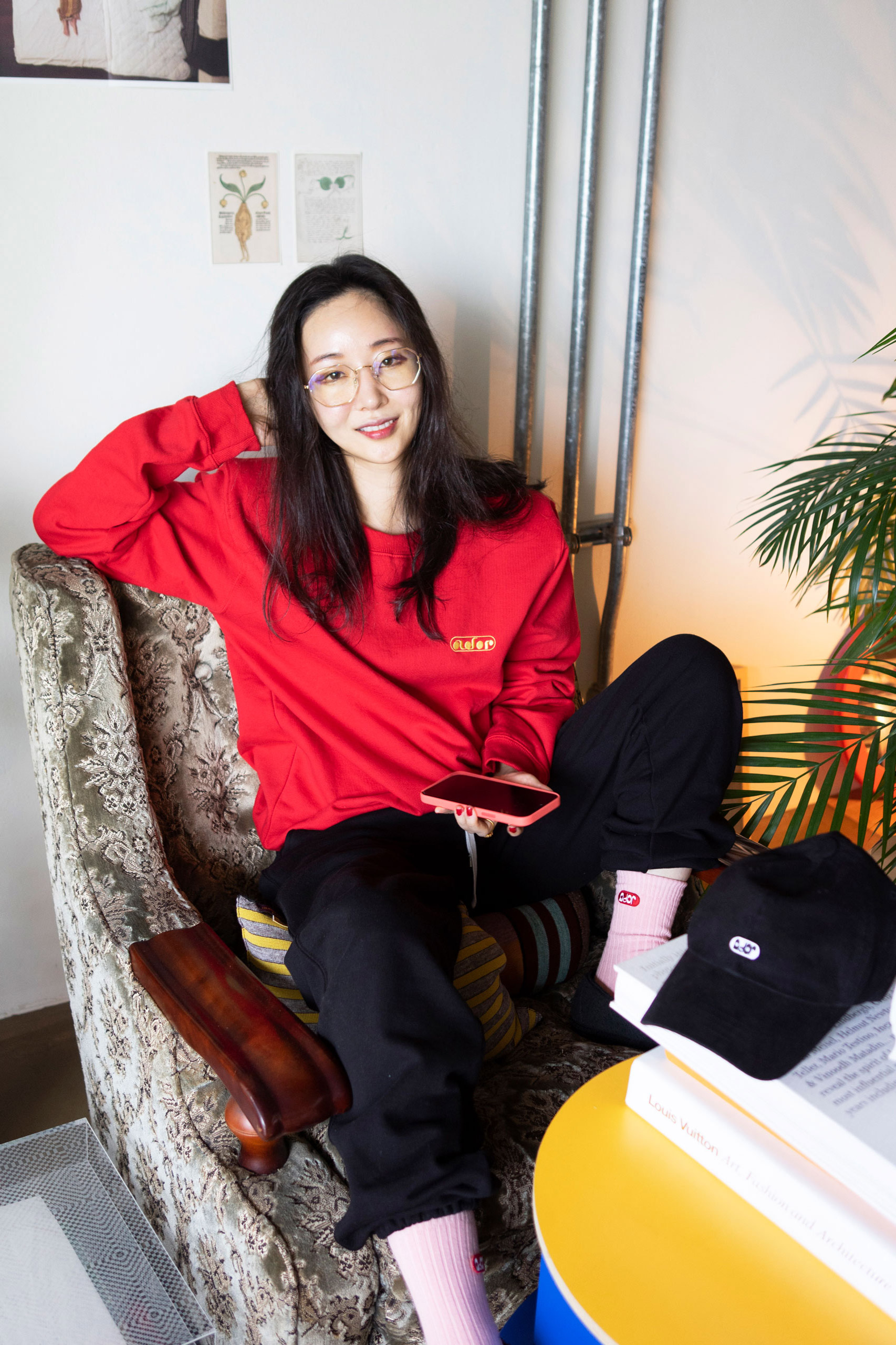
(Harry Jun) Is there anything that hasn’t changed, or anything you’d like to see change?
Despite everything else, there could still be some things that haven’t changed, like misunderstandings or conjecture. It’s human nature that, when someone sets out to hate another person, the facts are irrelevant—everything about that other person becomes fodder for hatred. Everyone’s capacity for empathy is different. So what I really wish would change is for all prejudices to go away. I’m something of a perfectionist, as I mentioned before, which makes my head fill up with thoughts and wear me down. I mean, I’m the type of person who puts their all into everything they do. I put my all into my work, work hard so people will understand my intention and I’m trying my very hardest to convey myself in such a way that there’s no misunderstanding. People have their own stereotypes about different jobs; I might be a little different from the stereotypical director or CEO that everybody always thinks of. For those interested about me, I hope they avoid pigeonholing me into any conception of what an executive is like and instead take some time to observe the work I’m doing. You won’t be able to see much if you have a closed mind and think within a narrow frame of reference, obviously. There isn’t really anyone who’s going to risk their live just to attempt something radical. I could take the easy route, but right now I’m traveling down a path no one’s ever taken before, even though I know it’s going to be exhausting. But that’s my personal choice, so it’s not like I would ever ask someone to try and understand that. But naturally, I would love it if they uncrossed their arms a little. If they just lightened up a bit.
Most people bring up Pink Tape when they talk about their anticipation. But if our new work is too similar they’ll calling it a rehash, and if it’s wildly different, you can expect they’ll say it’s too left field and a let-down. Because I’m aware of the risk that this could disappoint people this way or that, I’m working more prudently than ever before. To be honest, it almost feels like I’m caught in the middle of a thunderstorm and tasked with dodging every raindrop and arriving at my destination completely dry. (laughs) Now that I’m running my own company, I’m faced with so many new challenges popping up all the time. I might face a lot of dilemmas going forward when I have to make decisions since the first priority of any company is to turn a profit, but for myself, at least, I think my priority when it comes to making any decisions will be to do so conscientiously. For people who look at a challenge as a thing of beauty—one full of meaning—I hope they do away with all the needless misunderstandings and conjecture and have faith in it going forward.
(Kim Jae-hun) From what you’re saying, it sounds like you must be under an incredible amount of pressure.
I see pressure as an inevitable part of the job. But I actually want to use this interview as an opportunity to express my deepest thanks to all the fans and consumers. I heard from the ADOR team that, in conjunction with the previous interview, domestic and international fans alike have been working to set the record straight about all the misinformation that’s been out there all this time, piece by piece! 🥲 And, on top of that, I’m feeling really grateful for all the Korean fans and fans from every other country lately, so I really wanted to take this opportunity to say how thankful I am. It’s hard for me to find the words to express just how thankful I am to all the wonderful fans of our team at ADOR. I’m sincerely indebted to them for expressing so much interest, even though none of the members have officially been revealed yet. And I’m amazed by all the support that’s been flowing in from all around the world. Brazil was one of them—maybe because I said I like Brazilian music. (laughs) I want to mention every country, but there’s so many, it would take me forever to list them all one by one. There’s so much anticipation and encouragement coming from so many countries that I’m at a loss for words. I do feel some pressure, since the greater the expectations, the bigger the disappointment could be. I hope people don’t set their expectations infinitely high and just enjoy the experience. I’m really trying to stay positive as much as possible. Sometimes I feel overwhelmed, but I’m trying to stay positive, keep my mind in check and think about how blessed I am to be launching a project to all this fanfare! Anyway, it would be silly of me not to say thank you just because of the pressure, so I’m saying it now. My hope now is that we can repay every one of them with a good performance when the time comes through hard work.
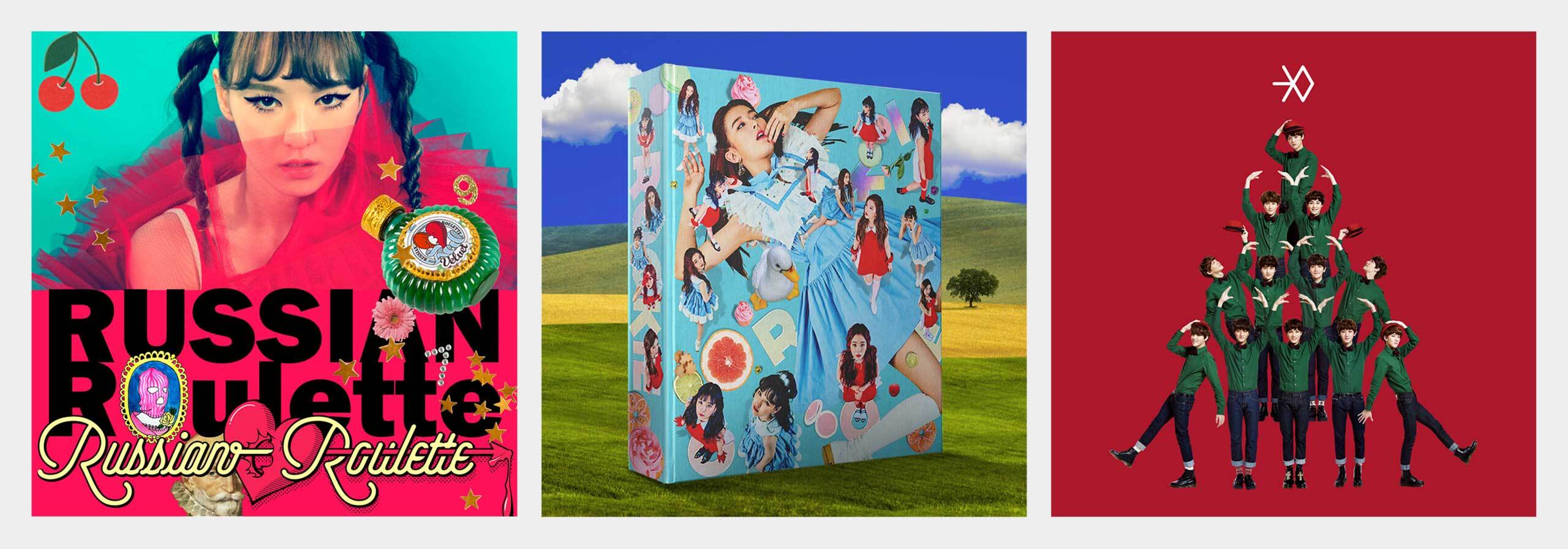
Red Velvet_[Russian Roulette] © SM Ent. | Red Velvet_[Rookie] © SM Ent. | EXO_[12월의 기적] © SM Ent.
(Jin Chae-min) What would people who know you say if asked the question, “How much do you know about Min Hee-jin?” What about the public?
I’m nobody special—there’s no reason to know everything there is to know about me. But since the fans are also the consumers, I figured if they understand me, the executive director, better, it will make the business run more smoothly. These days, especially. And that’s the reason I agreed to this long interview, which is unprecedented for me. I’m putting in a lot of effort to get close to the fans in my own way. But I’m also aware that even this kind of honest interview can be distorted and lead to gossip in turn. Or maybe, because I have a lot to say, it could be excerpted and spread around and then distorted. And yet, if I don’t do it, there could still be misunderstandings, so I figured I could get ahead of it—“If they’re going to talk about me anyway, I may as well be honest!” People usually have their own ideas about the leadership or president of a company, right? But, as you know, blindly grouping people together by their generation, job or title and judging them that way is pointless. It differs from person to person.
I hear people are concerned about our music because I’m an art director by trade. But we’re living in an era where hybrid work is regarded as normal, so it goes without saying that that’s a really outdated way of looking at things. Maybe it’s because I never talk about it. I didn’t think I was limiting myself to the art directing aspect only. Any time I could do something, I tried to do everything I could in aspects outside of the visuals as well. At my previous workplace I regularly expressed my opinion when it came to selecting songs and the direction they should take, too. I had the name of an album changed once, and we even took a rare staff vote after I offered my opinion once and that led to changing the lead single. It was my idea to put out a compilation album in collaboration with 10 Corso Como, too, in collaboration with several DJs. Wow—that was back in 2013. There’s no way that outsiders would know about that, and yet there’s already a long history of producers who started out as businesspeople and managers with no connection to music who are now making albums. I wonder if people are confused because my case is slightly different. I’m always surprised this kind of narrow-mindedness exists in 2022.
10 Corso Como Seoul Melody
(Cha Woo-jin) There certainly are deep-rooted views in our society. It makes me even more curious about your music.
I think most people are excited about seeing the concept and design. The whole reason I wanted to start an independent label, and have the final say on all decisions, was because, when it comes to production, every field is interlinked with one another, and no one field is more important than any other. I wanted to suggest new things for music but for various other fields as well. What makes me happy is that our group’s members are really into our music. They said so when they were listening to songs without being told which were theirs. When I finally revealed it was their music, they all clapped and cheered. The whole ADOR team did as well. But obviously, just because we like it doesn’t guarantee everyone will. There’s no way of guessing what will be popular until it’s out in the wild. So maybe that’s the reason I feel you have to do what you want to do most. Because there’s no way to know until you try. I had a hard time creating works in the past, too, when I wasn’t really feeling the music. Working with music you like is a joy in itself, so it’s important to work on music everyone likes so that they all feel satisfied about what they’re making. People who create artwork, especially, are naturally quite sensitive to music and sound and easily influenced by them, so in the past I’ve made teaser videos and trailers to highlight the distinct mood of good songs. The “Odd–View” trailer series for SHINee is a good example. When good artwork is combined with good music, the feeling is even greater than the sum of its parts. I don’t mean to say the music is the most important part—what I mean is that, when every part comes together well, the beautiful feeling behind it reaches its maximum potential. That’s why the business side of things, which might feel sort of removed, is also important.
SHINee_[Odd] Comeback Trailer © SM Ent.
(Cha Woo-jin) That makes me think of the branding presentation you did, all of a sudden. It seems like you have your own way of approaching commonplace projects. It felt so fresh, even though it was a corporate presentation.
When I first wrote the initial proposal for the HYBE: New Brand Presentation and planned out the script for it, there were a lot of worries about it until they saw the final product because it was in an untested format. I understand there’s a limit to how well people can understand because it only exists as a blueprint in the mind of the planners until the finished work can finally be seen. Now I accept that this persuasion is a necessary part of the process. It’s second nature to me now. (laughs) I stayed awake every night preparing with our team’s director, Yemin Kim, and Donghoon Shin, our vice president, until the day of the presentation. The best part was when I heard people who weren’t from our company saying, “Why am I so into some other company’s presentation?” Standard corporate presentations are, of course, quite boring. It meant a lot to me that I could make people happy, even through something no one had any expectations for. But I once again felt acutely how hard it is to persuade others to make something that has never been made before. If you work through the difficulty and break existing expectations, new possibilities present themselves and the delight that results from that becomes another motivation to work. I think I naturally have a desire to surprise people with interesting ideas. And I’d like to make that happen again with ADOR’s girl group, too.
HYBE: New Brand Presentation
(Kim Jae-hun) I can sense from this whole interview that you have a lot of faith in your teammates. It’s unusual for a workplace to become so close that coworkers stay in touch during their personal time as well. How do you become friends with others, personally? What does friendship mean to you?
If I’m going to discuss this, I want to talk about Yemin Kim, our team’s director. She’s so reluctant to reveal her personal views, so she’s definitely going to nag me if she finds out I said this in this interview. (laughs) She started at the company I used to work for, so we’ve been working together for a long time since. We share similar values when it comes to the world and to working. Yemin and I have worked on major projects together for quite a long time. She made sizable contributions to EXO’s Pathcode project, too. Most people probably wouldn’t know this, but I ran the project with a task force of three members, including the two of us. Pathcode project was also a similar case to f(x)’s Art film work. At that time, I deemed it strategically necessary, so I proceed with it myself. Sometimes people outside the company misread the situation and thought we mobilized a great deal of people to get it done, but they were mistaken. The amount of personnel on a project and the quality of the work are not always proportional. What’s important is that you have an acute understanding and unbreakable concentration in a given time. We’ve done a huge number of projects together; she’s a talented director with a strong work ethic who spent her time agonizing over things with me. I think we naturally formed a friendship after all the difficulties we overcame.
There’s been numerous times where I became friends that way with a music video director or other staff members, too. I’m something of a homebody and not particularly social, plus I’ve spent so much of my life dedicating myself to my work that maybe it’s inevitable. Donghoon Shin, our VP, is like a human moral compass. (laughs) He gave me extremely helpful advice when I was struggling, just like a psychiatrist. I was able to hold on thanks to every single member of the ADOR team, all of whom I’m incredibly thankful for, and all my friends who stepped up and shared the load. I think that applies to everyone who’s reading this and thinking, “Is she talking about me?” (laughs) I want to take this opportunity to extend my sincerest gratitude to them. No one likes to experience hardship. However, when you overcome that hardship together, the reward is progress in your relationships, and that’s a gift. Maybe in the future I could share this kind of friendship with ADOR’s girl group members, too.
(Park Sanha) I kept hearing “The Girl from Ipanema” at your home when we visited and I’ve been listening to it ever since. On the surface, most of the music you listen to is nothing like K-pop. Now I’m curious about how much your tastes differ from your job.
Wouldn’t the mainstream market be more interesting if there were more people like me? I’m sure the industry will slowly evolve as more people who think outside the box show up. As I mentioned, the youngest member of our girl group likes the old songs I listen to even though she’s unfamiliar with them. Personally, I feel a bit bothered when I hear people saying things like, “People will love this style,” or, “This is the only way to do it.” If that kind of formula existed, everyone would be successful, not just a select few. I think I unconsciously project my own tastes into my work in order to enjoy it more. I want to introduce people to the things I like to listen to and other things I’m into. As a person who creates pop culture, I’m always thinking about that point of contact. There’s so much good music in the world, and I don’t think that goodness can ever be restricted to just one style. So I want to introduce people to that kind of variety. With that in mind, I think I’ll be actually able to choose diverse music styles that exist beyond the standard style because I’m not a music producer by trade. Once I like something, I like it for life. I chose the executive music producer of ADOR because they’re someone I really trust and can vouch for. We’re working hard together. While I’m timid and easily hurt, I’m also predisposed towards curiosity and foolhardiness, so I’m giving some things a whirl specifically because no one else is doing them. I’ll try my best to suggest a variety of good things.
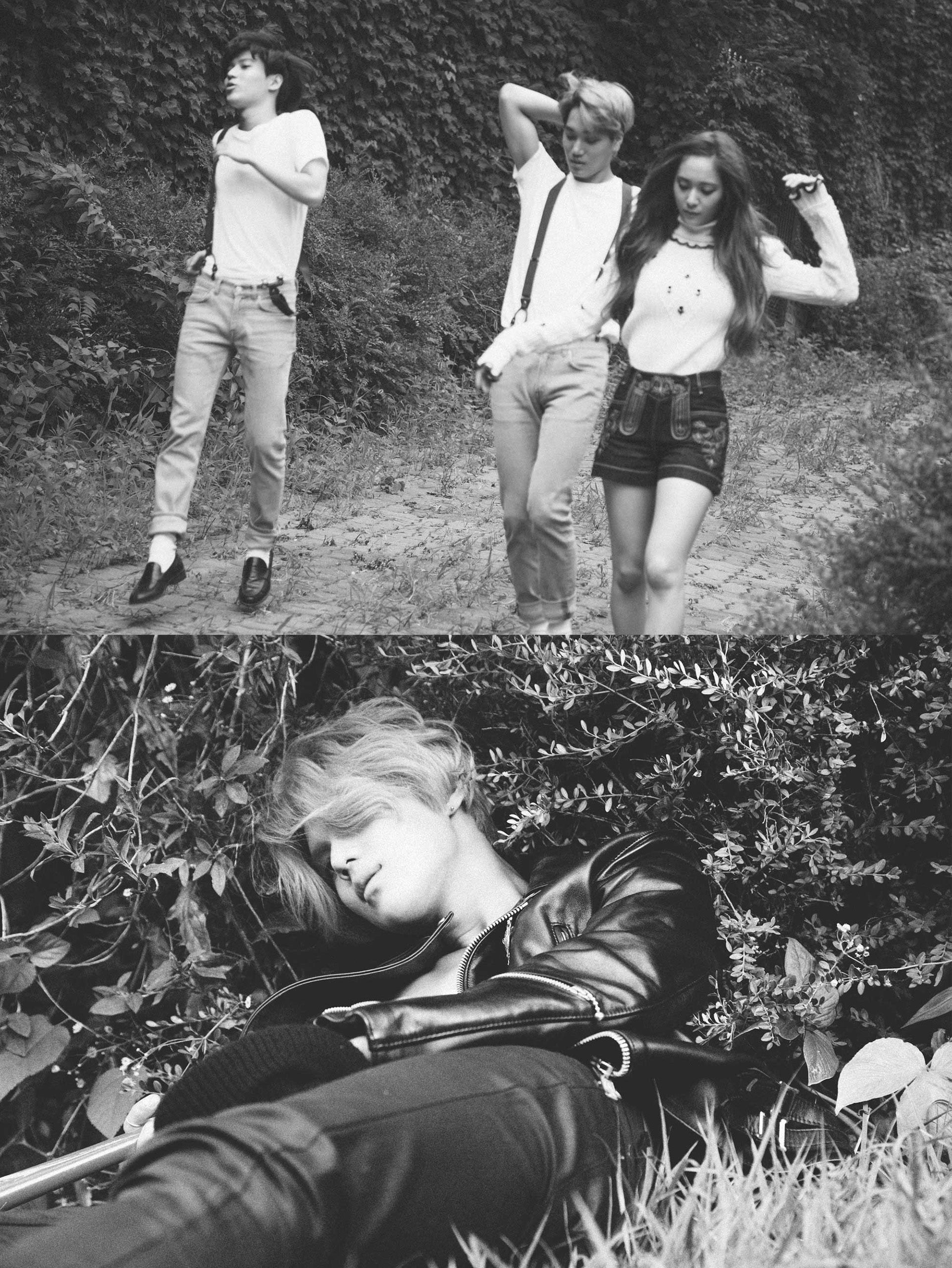

© «W Korea» | Taemin_[ace] © SM Ent.
(Park Sanha) Judging by the comments on Instagram, people are very interested in your home. What is your philosophy about home as far as being a place where living and working coexist?
I was made aware very late that the way I live has never been very typical, although, as I say, I wasn’t aware for the longest time. (Don’t get me wrong—I’m not one of those weird-for-the-sake-of-weird types! I can’t stand that.) The same goes for my attitude toward my workplace, my work, and other people. I think the same applied to my home, too. I wanted to make it a place where I could be happy more than use it as an investment. I was planning to fix the place from floor to ceiling anyway, so there was no need to find an expensive house in the first place. And I kept the house empty as I slowly worked on it over the course of a year. Now that I think about it, I’ve already been living at my place for 12 years now. Not only do my friends love it, but our teammates like to come over and hang out or work, too. And I really enjoy it as well. Everybody who comes to my home all say the same thing—oh, and I think you BeAttitude people said this too, right?—that this house makes you feel like you’re transcending time and space. So you all stayed late into the night, talking away. Hahaha. As a side note, I focused on creating a space people would want to stay in when I was designing HYBE’s new office space, too. I’m not just saying that to sound generous—I really did design it from the bottom of my heart in hopes that everyone would be happy being at the company. That kept me unbelievably busy and I can’t believe it’s already been a year.
(Kim Jae-hun) As a content creator, I feel you must have good taste when it comes to “good” things. Can you recall the first good things you came across when you were a child or in your teens? It could have been anything from music, to books, or anything else.
Recommending songs I like—I can’t get enough of it. Hahaha. I really love music. Music really controls the whole atmosphere and mood of the space it’s played in, so wouldn’t it make sense that people fall in love so frequently when sharing the music they like? The environment was completely different when I was young, so digging around to discover new music was a skill in itself. I was a somewhat precocious child and became completely absorbed in books, music and movies from a young age. I think I didn’t really read comics much, though. But I still enjoyed some classics like Rough and Slam Dunk. Anyway, I don’t confine myself to genre when I listen to music—there’s just a certain feeling that I like. I think I naturally seek out that style of music to listen to. When I was a kid I had a whole collection of mixtapes at home made up of songs I heard on the radio and liked and managed to press record just in the nick of time. I can’t remember for sure whether it was in grade school or middle school, but I still have this vivid memory of lying down and tears rolling down my cheeks when I first heard “Desafinado” by Antônio Carlos Jobim. I could make out every chord and rhythm as though all the instruments were separated and I loved this marvelous, fantastic feeling of the exquisite harmony they created together. “The Girl from Ipanema” is like my theme song(?). (laughs) Anyway, I’d gladly recommend some songs I like. But please don’t misinterpret this and assume this is what ADOR’s girl group’s songs will sound like. Please understand that I would never give away hints that easily. Haha. Naturally, some of my tastes will spill over to some extent, but it’s just my tastes and nothing more—business is a whole other story. (laughs)
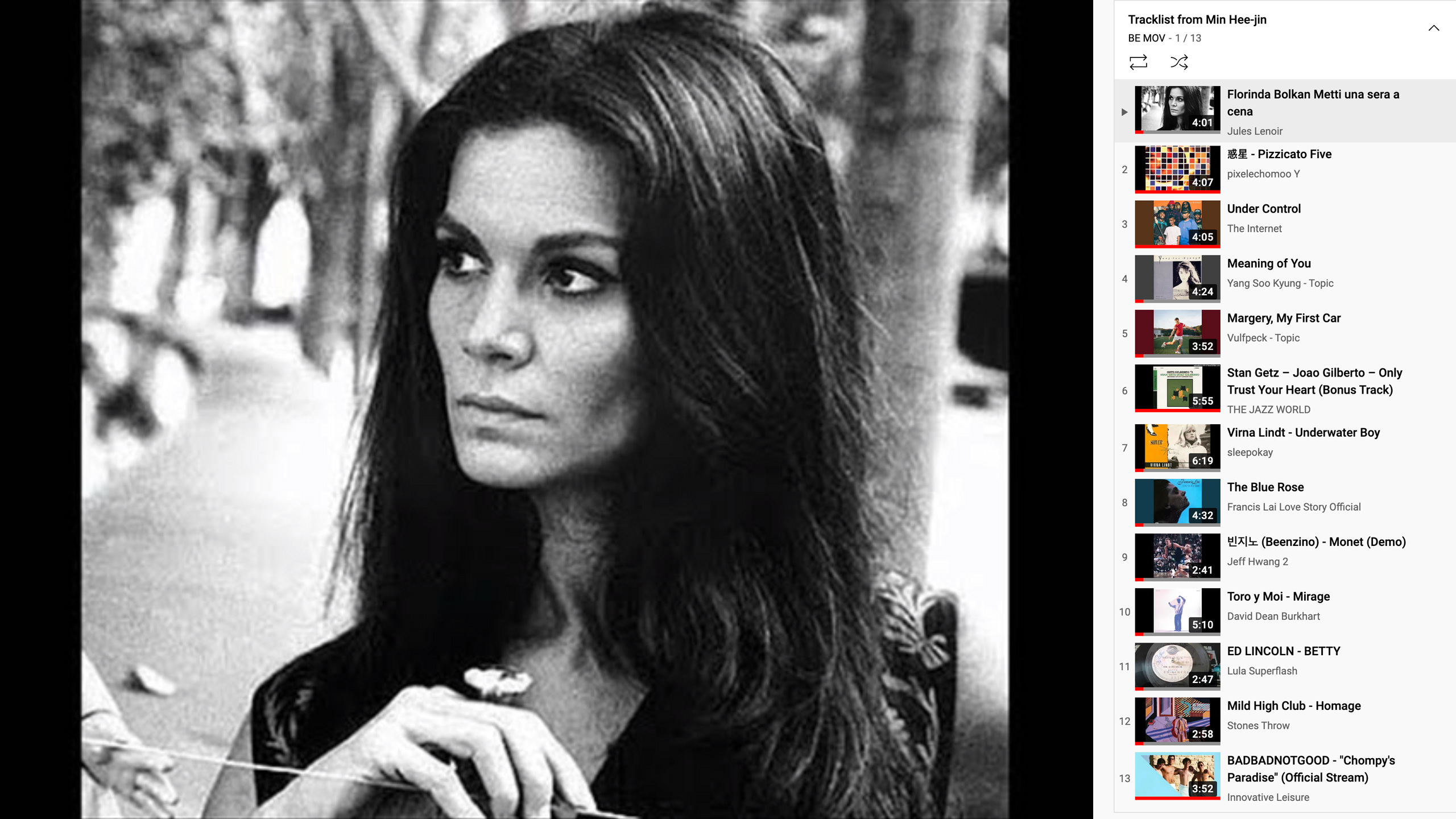
Metti una sera a cena by Florinda Bolkan, 1969
惑星 by Pizzicato Five, 1988
Under Control by The internet, 2015
Meaning of you by Yang Soo-kyung, 1990
Margery, My First Car by VULFPECK, 2016
Only Trust Your Heart by Stan Getz, Joao Gilberto, Astrud Gilberto, 1964
Underwater Boy by Virna Lindt, 1983
The Blue Rose by Francis Lai, 1975
Monet by Beenzino, 2021
Mirage by Toro y Moi, 2017
Betty by Ed Lincoln, 1970s
Homage by Mild High Club, 2016
Chompy’s Paradise by BADBADNOTGOOD, 2016
(Harry Jun) Do you think creators also measure the success of their work by the business aspect of how many people consume it?
Everyone has their own way to measure success. The same work could be seen as a success or a failure depending on how you measure it. People say the most important thing is for you to be satisfied, but they should be on their guard because there’s a high chance it will quickly deteriorate into personal comfort if no one can relate to it. Finding success on the back of popularity or reputation without regard for depth or quality can lead to delusion about what made it successful, so if you want to figure out whether your success is real or not, you have no choice but to engage in self-criticism. If you have to criticize yourself, you inevitably end up hurting yourself, too. As they say, there’s no reward without perseverance. I completely understand why adults were always saying that now that I’m older myself. At the end of the day, I don’t think there’s any path you can take that’s going to be pleasant, easy and rewarding. You don’t have to look any further for an example than me: It might be easy to look at my fame or my salary and find a reason to feel envious, but as I keep saying, I went through an extremely hard time. One thing I discovered that shone through the darkness for me was to not cling to the notion of success, since it isn’t everything, because everyone’s idea of success is different, and instead recognize that it’s important to strike a balance between self-satisfaction and self-criticism to find a way that allows you to keep yourself happy. It’s a long, hard, lonely road, but once I managed to identify my own method and solution, the next step revealed itself to me. The next step is something only applicable to you and not to anyone else. I think that’s just the way life is—constantly looking for your own personal next step.
(Harry Jun) You spent years in a constant state of intertwined joy and suffering where staying up all night at work was an everyday occurrence for you. And yet you stayed in the same field. I can’t imagine anyone could get through all that without having their own personal philosophy. What is your philosophy when it comes to work? I’d also like to know what has kept you going like this for so long.
I always say to my friends and coworkers, “Ugh, why do I work this hard?” (laughs) I asked myself that question many times, and actually, I don’t think there’s anything I really want all that much from life. Sometimes I feel like a mayfly, living 24 hours at a time. “I’m going to accomplish this someday,” “I want to become this kind of person”—I don’t really have anything specific like that. My top priority is just to accomplish whatever my short-term goal is at the time. By the time I achieve them, everything will have changed to match them anyway, so I’ll have to set a new goal. I guess you could say I’m chasing anticipation. I don’t hope; I imagine, “Wow—I wonder how my life will change after I accomplish this?” I think my curiosity is what keeps me going. So sometimes I feel like my life is a kind of performance art. Almost like I’m conducting an experiment of my own design, with my life as the subject. Maybe that’s the way I’m playing that character, not because I love working so much. At any rate, if I didn’t work, life would be tedious and empty. I think I find enjoyment in the unexpected that inevitably arises from the process.
Apart from that, I think I was just born with a sense of responsibility. The two work together beautifully, which is probably why people who don’t know me well see me as a workaholic, but in reality, the work itself isn’t really something I see as all that great, or something I love, or something I’m overflowing with pride over. But I’ve worked so long and so hard in my field that I at least feel personally loyal toward it, like I said before. It might sound weird to say, but I feel genuine loyalty toward my work. And my sense of responsibility is inborn, not something I picked up from working, so it naturally imbued me with a strong work ethic, too. I think of these two concepts as being inextricably linked. On a surface level, the two might express themselves in similar ways, but it’s not the same as loving work. Anyway, with the different weight of this new position, it feels like what was once a practice test has since become a real exam. And it makes me a little nervous. For the enjoyment of anyone reading, and for my own excitement, and to ensure the lives of all interested parties keep on being exciting, I sincerely hope I pass this exam with room to spare.
Part 2. A Rare Peek into Min Hee-jin’s World
Artist
While working as a creative director at SM Entertainment, Min Hee-jin was the leading force behind the experimental concepts taken on by the company’s idol groups, such as Girls’ Generation, SHINee, f(x), EXO, Red Velvet, and NCT. After she joined HYBE as Chief Brand Officer (CBO) in 2019, she was responsible for the company’s branding as well as creating the spatial design for its new office building. She is the head of ADOR (All Doors One Room), a new label launched by HYBE in the latter half of 2021, and is currently making preparations for the debut of her label’s first girl group. Min was selected as one of the “Women That Have Made an Impact in Global Entertainment” by American entertainment media outlet Variety earlier this year.
Editor
Harry Jun studied visual communication design at Kookmin University and began his career at the Korea Culture & Tourism Institute. He worked as an editor at magazines such as Monthly Design, Space, and Noblesse in the past, and has contributed various columns to the design magazine CA and HuffPost. In addition, Jun served as deputy chief editor, editorial advisor, and creative director for BRIQUE, a magazine on residential architecture. As a design and architectural journalist, Jun currently contributes articles to a variety of media, including The Chosun Ilbo, The Edit, and Luxury. He is also the chief editor of BeAttitude.
Contributing Editor
Cha Woo-jin is a pop culture critic who mainly observes, listens, reads, and writes about fandom, content/music industries, and the creator ecosystem. Cha writes columns about media and content industries through TMI.FM, his own music newsletter and radio startup, while contributing articles about music and lifestyles to different media outlets. He is the author of several books, including Independent Worker, Music Industry: Its Setting Is Changing, as well as Sound of Youth, Understanding Popular Music, and Idols: From H.O.T. to Girls’ Generation. He is an advisor for the Korea Creative Content Agency’s music industry white papers and forums. He has planned or produced content for Naver Onstage, the Korean Music Awards, and the Hyundai Card Music Library.
Photographer
Song Si-young is a photographer based in Seoul. Song majored in photography at the School of Visual Arts (SVA) in New York. He has worked on a variety of album covers and has collaborated with numerous media outlets, including ZEIT Magazin (Germany), W (U.S.), and Magazine B (Korea).
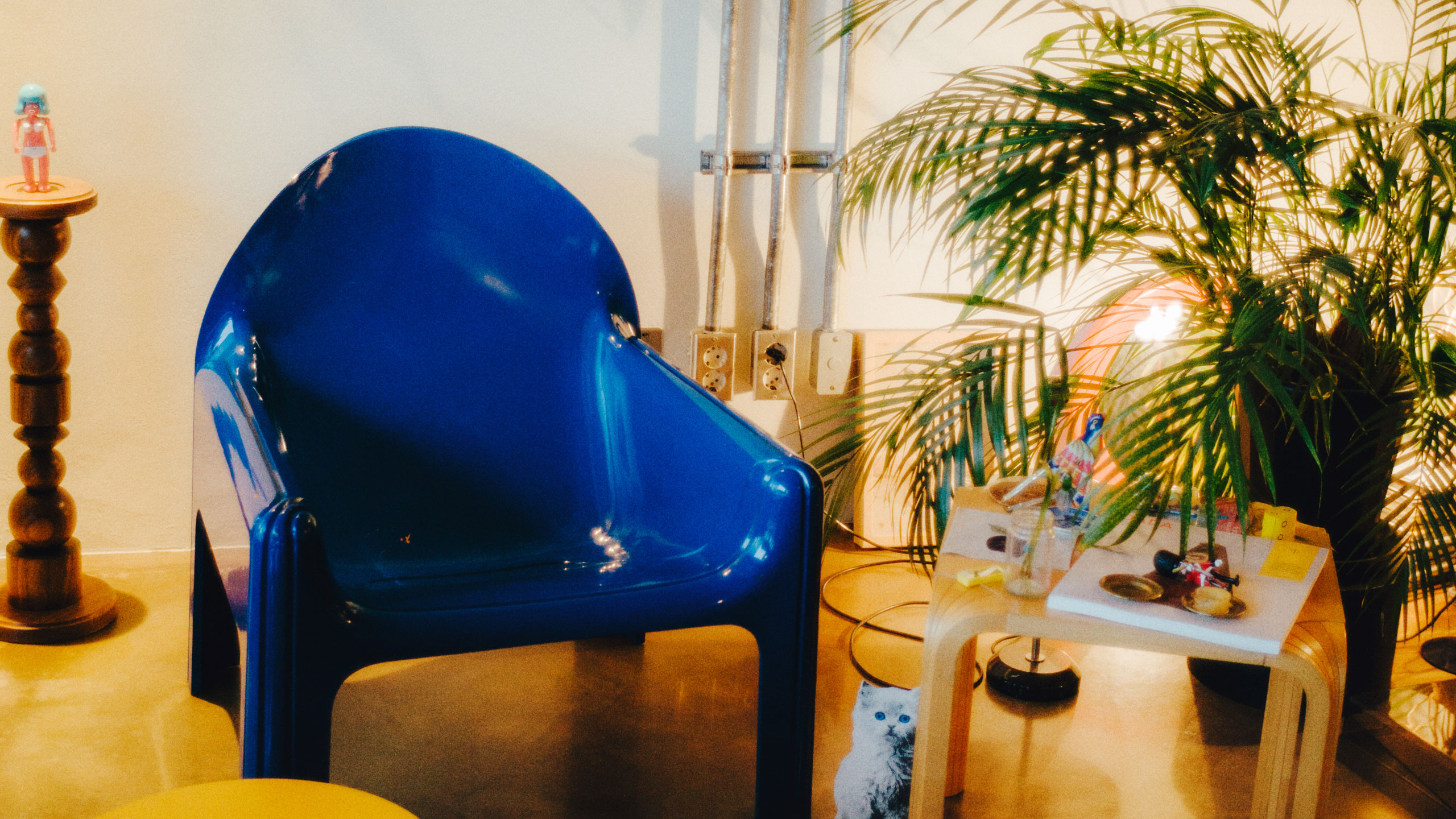






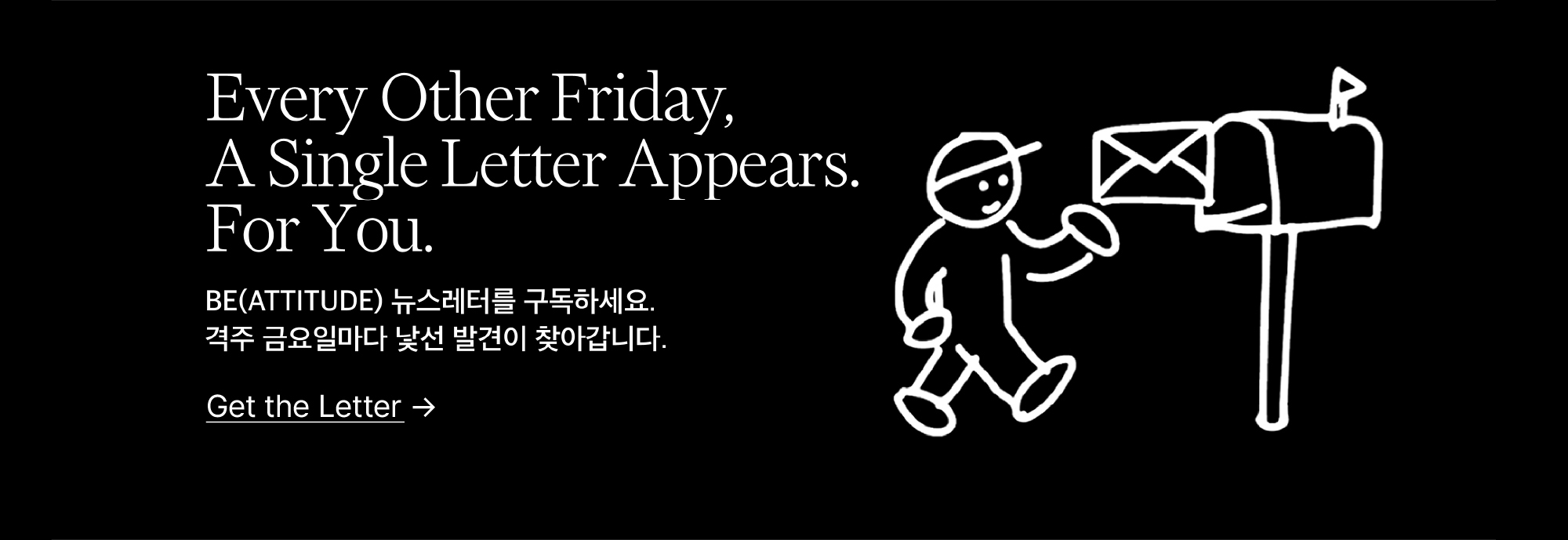
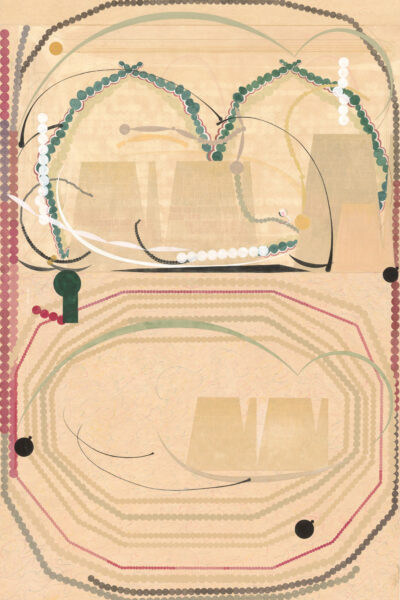
![[BA]섬네일](https://magazine.beattitude.kr/wp-content/uploads/2026/02/BA섬네일-3-scaled.jpg)
![[BA]섬네일](https://magazine.beattitude.kr/wp-content/uploads/2026/02/BA섬네일-2-400x600.jpg)
![[BA]섬네일](https://magazine.beattitude.kr/wp-content/uploads/2026/02/BA섬네일-1-400x600.jpg)
